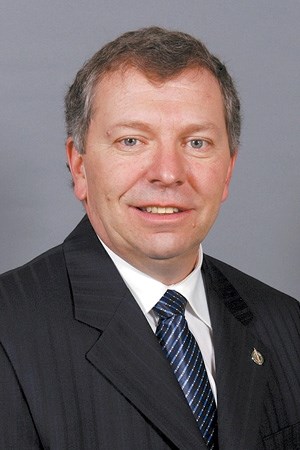Canadians born after 1958 will have to put off their retirement plans for a couple years.
The federal government is raising the age of eligibility for Old Age Security (OAS) from 65 to 67 as part of last week’s federal budget. The changes will be phased in starting in 2023 and end in 2029 so anyone who was 54 or older at the end of March will not be affected by the change.
Okotoks financial planner Ken Power said the change will mean $13,000 (at current value) less in retirement income for people who will be affected by the change. For most Canadians, he said OAS makes up a small portion of their retirement income and it shouldn’t impact them too greatly, provided they are prepared for it.
“Given that they’re phasing it in, Canadians should have time to prepare for it,” he said.
At 53 years old, Power will be affected by the changes, but said it won’t have a major impact because he has his retirement planned for.
He said its no surprise the government has made the decision, given the coming demographic changes as baby boomers start to reach retirement age.
In 20 years, there will be two working Canadians for every retiree. Macleod MP Ted Menzies said there are four working people for every retiree, compared to 1970 when the ratio was at seven to one. He said the government is taking a long-term approach to the changes to ensure they’re still around in the future.
“We need to make sure the system that we enjoy today… is still in place for our grand children and the only way to do that is to protect it,” said Menzies.
He said the government is slowly making OAS changes to give people time to get ready.
“It’s a gradual phase in and it will be totally phased in by 2029,” said Menzies. “It’s quite a way out and it gives everybody a chance to prepare for this.”
There were few other surprises in last week’s budget.
The deficit for the 2011-‘12 fiscal year is expected to be $24.9 billion and this year’s budget is forecasting a $21.1 billion deficit, but the government is expecting the economy to turn around next year and is forecasting a $3.4 billion surplus by the 2015/16.
“Our economy is doing well, fundamentally, and that is helping us reduce our deficit this year and we’re well on track to get back to a balance budget,” Menzies said.
Menzies understands some would like the government to move faster to eliminate the deficit, but he said they have to look at the big picture across the country. While Alberta may be doing well, he said there are other parts of the country that aren’t fairing as well and the government needs to do what it can to help them.
“We need to make sure the people in other parts of this country have access to good paying jobs as well,” said Menzies. “We’re reducing our deficit and getting back to balance in the medium term and that will benefit everyone.”
He said the government’s priority was creating jobs and fostering economic growth.
Menzies said building new coast guard vessels will help create jobs in coastal regions, while the resource sector will be a major driver in creating new jobs in other parts of Canada.
The government is also investing hundreds of millions in research and easing review requirements for projects to reduce red tape and get them up and running sooner.
Menzies said the federal department of natural resources is suggesting there’s half-a-trillion dollars worth of new resource and mining investment coming forward in the next few years.
“There’s 500 different major projects that are planned creating $500 billion in investment in this country,” he said.
Scott Hennig, Alberta director of the Canadian Taxpayers Federation, said the budget was disappointing because the government went into the budget talking about cuts, but didn’t follow through.
“They essentially went with a very similar plan to what they released last year which was essentially a leftover from their minority government,” he said. “The difference between a Conservative majority and a Conservative minority is so far very little.”
Hennig had hoped the government would’ve cut spending and mae more significant progress to balance the books. There is also no meaningful reform of public sector and MP pensions, he said.
He said the OAS changes need to be done.
“It is a long time, they’re certainly not moving on this quickly, but they don’t have a lot of options,” said Hennig.




